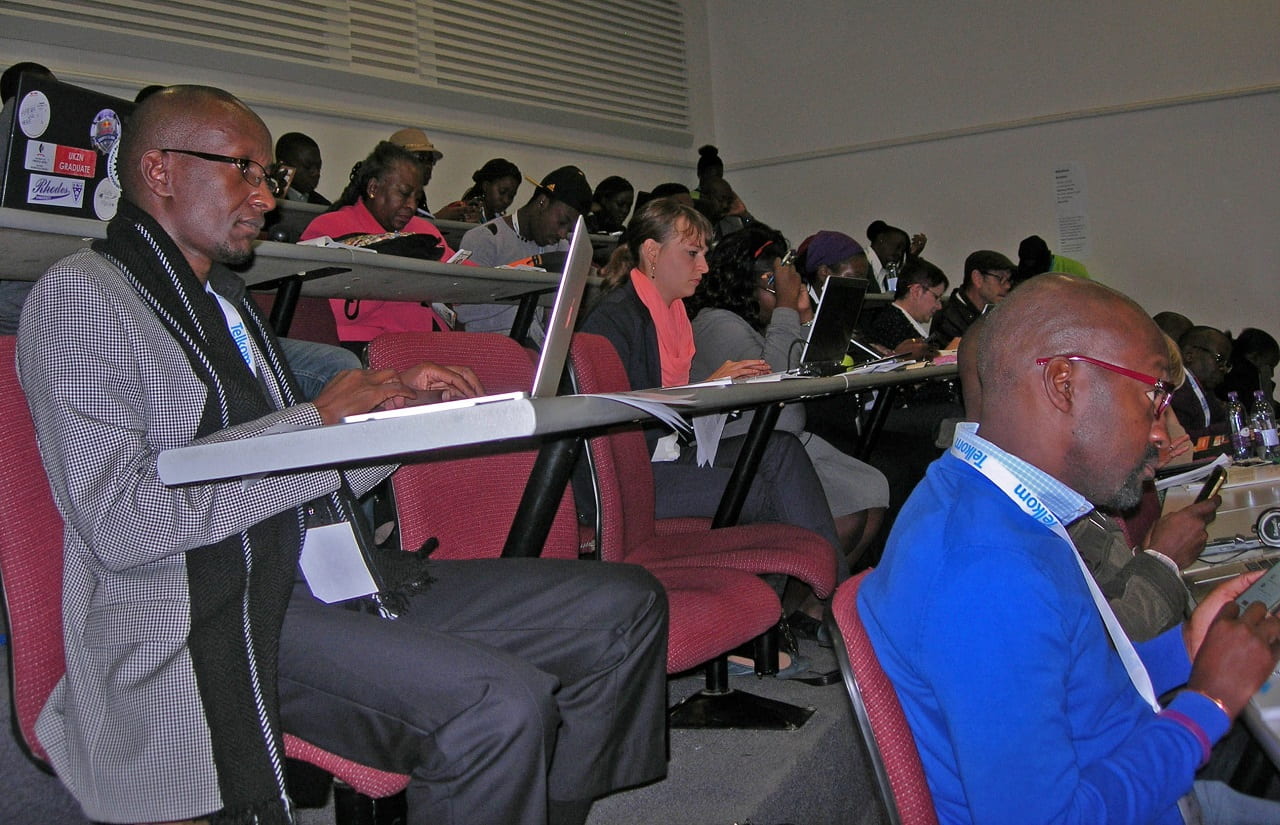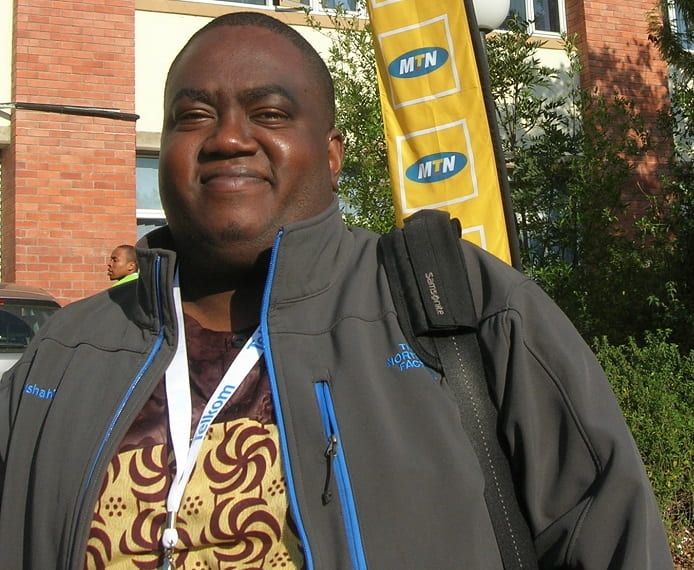GRAHAMSTOWN, South Africa – A CCLP initiative to define minimum capabilities of cell phone handsets for health care, public safety and other public services was a focus of discussion at a forum here at Rhodes University on Sunday.
“What a good question!” said Daudi Khamadi Were, Innovation Coordinator at Making All Voices Count, part of Kenya’s global Ushahidi group. Were said that cell phone service for illiterate users should be a key issue.
“Mobiles need to be voice-enabled for those who cannot type as fast,” agreed Bomasanto Ndulovu, Strategic Executive Director for South Africa’s capital city, Tshwane (still known as Pretoria in much of the world).

The audience at the Rhodes University forum takes notes during a discussion on mobile technology.
Were responded that cell phones in Africa have been tools to increase literacy and financial knowledge, because of apps that have become popular and even essential.
“If it is relevant and done correctly,” he said, “then people do usually learn how to use it.”
One example he cited was M-Pesa, a financial service employed by millions of Africans to use their cell phones to pay bills and transfer money to relatives. (M is for mobile, and Pesa is Swahili for money.)
When M-Pesa was introduced, there was wide expectation that illiteracy would be a barrier to its use beyond a narrow elite. Instead, he said, it has become extremely popular. Introduced in 2007, it is used by Africans who have never had a bank account; M-Pesa now handles billions of dollars in ten countries, and a substantial percentage of Kenya’s total annual GDP flows through mobile phones via M-Pesa.
Ndulovu raised a related issue: languages. If someone sends a text message to the police in the U.S., officers should be able to understand it regardless of whether it is in English, Spanish, Vietnamese or any other language. In Africa, the issue is pressing because there are numerous languages, including several official languages.
“South Africa has eleven languages,” she said. “We need to always make sure you can accommodate people.”

Daudi Khamadi Were, Innovation Coordinator at Making All Voices Count
Translation software can help, and new versions are extending automated interpretation to an ever larger number of languages. For example, Nigel Magumu, founder and CEO of Zimbabwe’s 263Chat, a popular service on Facebook and Twitter, said his developers are working on software to translate text messages from all of that country’s African languages into English, so 263Chat sessions would have a common language.
Ndulovu suggested another, simple feature that should be included: Users should see a “message received” receipt indicating successful delivery of messages ranging from police emergencies to reporting a pothole in a local street.
Were said for effective public engagement, mobile telephones should have at least some Internet access so users have more than voice and text service, “to move us from m-governance to e-governance.”
Were, whose company is part of Kenya’s iHub technology center, added a technical issue — the mobile telephone’s operating system. He said open source should be preferred, because closed operating systems can hide “back doors” that enable companies, governments and individuals to intercept messages and steal personal information.